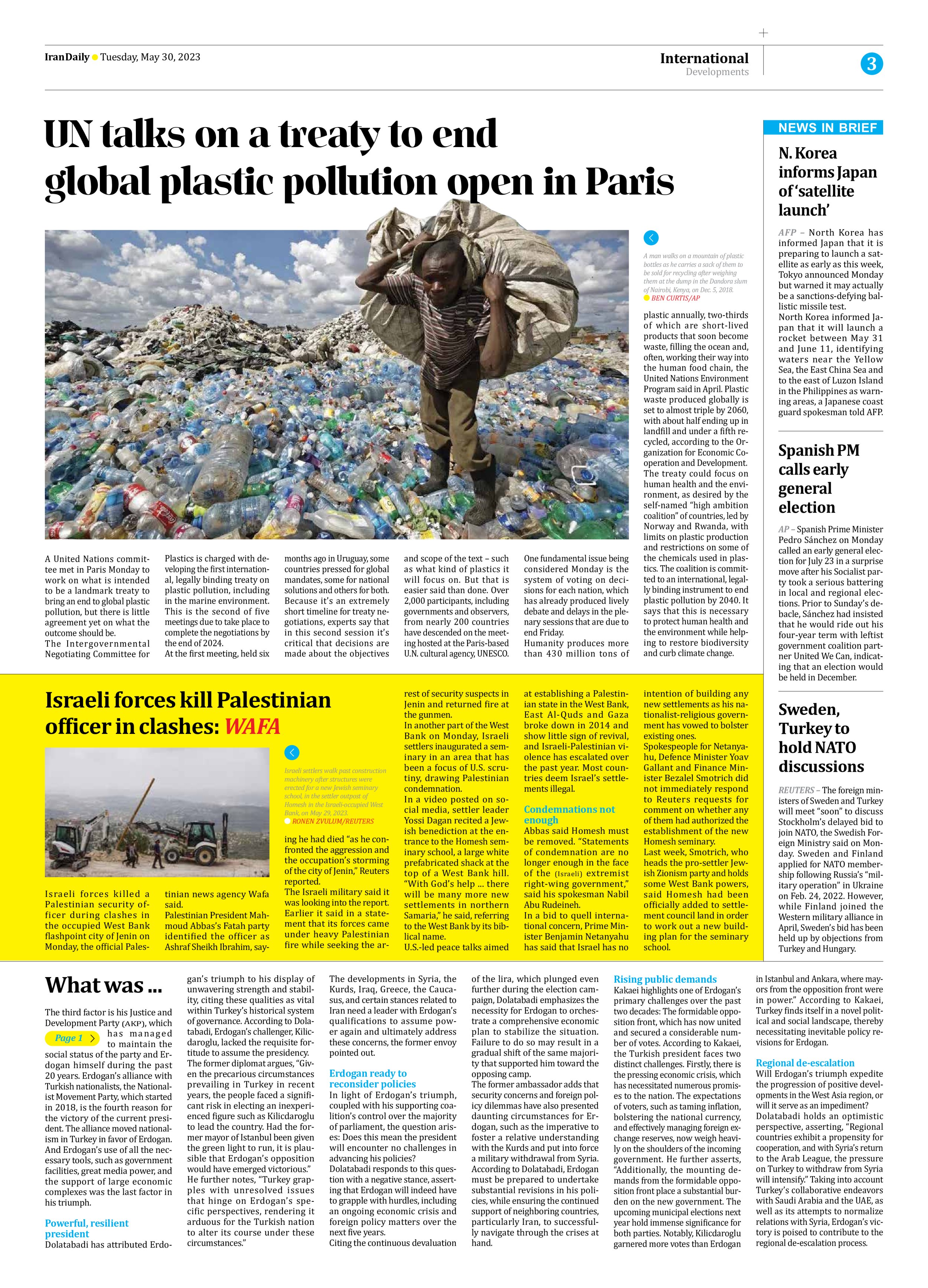
What was ...
Page 1
The third factor is his Justice and Development Party (AKP), which has managed to maintain the social status of the party and Erdogan himself during the past 20 years. Erdogan’s alliance with Turkish nationalists, the Nationalist Movement Party, which started in 2018, is the fourth reason for the victory of the current president. The alliance moved nationalism in Turkey in favor of Erdogan.
And Erdogan’s use of all the necessary tools, such as government facilities, great media power, and the support of large economic complexes was the last factor in his triumph.
Powerful, resilient president
Dolatabadi has attributed Erdogan’s triumph to his display of unwavering strength and stability, citing these qualities as vital within Turkey’s historical system of governance. According to Dolatabadi, Erdogan’s challenger, Kilicdaroglu, lacked the requisite fortitude to assume the presidency.
The former diplomat argues, “Given the precarious circumstances prevailing in Turkey in recent years, the people faced a significant risk in electing an inexperienced figure such as Kilicdaroglu to lead the country. Had the former mayor of Istanbul been given the green light to run, it is plausible that Erdogan’s opposition would have emerged victorious.”
He further notes, “Turkey grapples with unresolved issues that hinge on Erdogan’s specific perspectives, rendering it arduous for the Turkish nation to alter its course under these
circumstances.”
The developments in Syria, the Kurds, Iraq, Greece, the Caucasus, and certain stances related to Iran need a leader with Erdogan’s qualifications to assume power again and ultimately address these concerns, the former envoy pointed out.
Erdogan ready to reconsider policies
In light of Erdogan’s triumph, coupled with his supporting coalition’s control over the majority of parliament, the question arises: Does this mean the president will encounter no challenges in advancing his policies?
Dolatabadi responds to this question with a negative stance, asserting that Erdogan will indeed have to grapple with hurdles, including an ongoing economic crisis and foreign policy matters over the next five years.
Citing the continuous devaluation of the lira, which plunged even further during the election campaign, Dolatabadi emphasizes the necessity for Erdogan to orchestrate a comprehensive economic plan to stabilize the situation. Failure to do so may result in a gradual shift of the same majority that supported him toward the opposing camp.
The former ambassador adds that security concerns and foreign policy dilemmas have also presented daunting circumstances for Erdogan, such as the imperative to foster a relative understanding with the Kurds and put into force a military withdrawal from Syria. According to Dolatabadi, Erdogan must be prepared to undertake substantial revisions in his policies, while ensuring the continued support of neighboring countries, particularly Iran, to successfully navigate through the crises at hand.
Rising public demands
Kakaei highlights one of Erdogan’s primary challenges over the past two decades: The formidable opposition front, which has now united and secured a considerable number of votes. According to Kakaei, the Turkish president faces two distinct challenges. Firstly, there is the pressing economic crisis, which has necessitated numerous promises to the nation. The expectations of voters, such as taming inflation, bolstering the national currency, and effectively managing foreign exchange reserves, now weigh heavily on the shoulders of the incoming government. He further asserts, “Additionally, the mounting demands from the formidable opposition front place a substantial burden on the new government. The upcoming municipal elections next year hold immense significance for both parties. Notably, Kilicdaroglu garnered more votes than Erdogan in Istanbul and Ankara, where mayors from the opposition front were in power.” According to Kakaei, Turkey finds itself in a novel political and social landscape, thereby necessitating inevitable policy revisions for Erdogan.
Regional de-escalation
Will Erdogan’s triumph expedite the progression of positive developments in the West Asia region, or will it serve as an impediment?
Dolatabadi holds an optimistic perspective, asserting, “Regional countries exhibit a propensity for cooperation, and with Syria’s return to the Arab League, the pressure on Turkey to withdraw from Syria will intensify.” Taking into account Turkey’s collaborative endeavors with Saudi Arabia and the UAE, as well as its attempts to normalize relations with Syria, Erdogan’s victory is poised to contribute to the regional de-escalation process.







